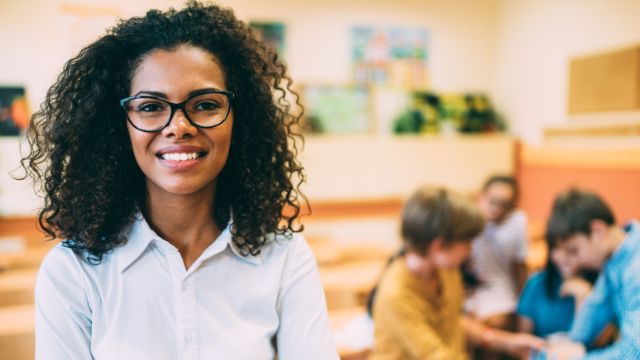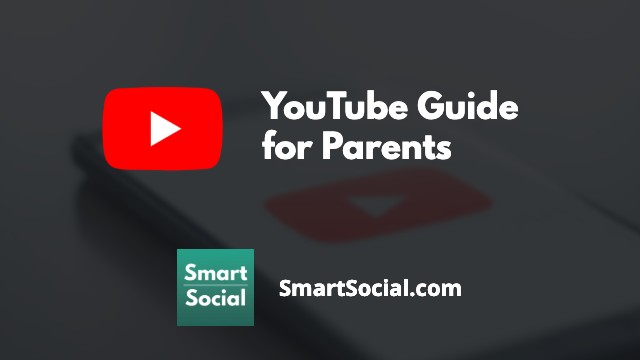Shine Online: Positive Impact of Social Media & Screen Time
Green Zone App
(Click here to learn more)
Dangerous Social media challenge
(Click here to learn more)
Red Zone App
(Click here to learn more)
Gray Zone App
(Click here to learn more)
There’s a lot of talk about the negative side of social media, but we tend to overlook the positive impact that social media can have on a student’s future. Students can use their social media platforms for good by creating a digital portfolio to shine online. These valuable skills can not only help teens learn to balance their screen time but also create a digital footprint that creates amazing opportunities in the future.
College admission officers and potential employers are looking at students' online footprints. Teens who learn how to use their social media accounts to highlight their skills, experience, and values will be ahead of their peers.
Educators and parents: Guide your students' reflection and discussion with this student worksheet. (Log in to your Google account and select File-->Make a Copy)
Full Event Replay
Shine Online: Help Your Child Build A Positive Footprint (parent video)
What is a positive online footprint?
- A positive online footprint is a collection of digital content and interactions that reflect your best qualities, values, and achievements. It’s the intentional, thoughtful, and responsible way you present yourself online, shaping how others perceive you in both personal and professional contexts
- Content that highlights your strengths, showcasing your skills, talents, achievements, and interests through posts, photos, videos, and comments on others' posts
- Posts that demonstrate kindness, respect, and positivity while avoiding controversy or offensive/harmful content
- Content that is truthful and well thought-out while aligning with your goals and aspirations
- Demonstration of responsibility and maturity that will make a strong impression on college admissions officers, potential employers, or scholarship committees
Why Students Need an Online Portfolio (student & parent video)
Examples of negative posts
Social media posts can have a lasting negative impact on a student's future
Mean comments/cyberbullying
- When a student posts a hurtful comment on someone's photo such as "You're so annoying, no one likes you"
- While some peers might find it entertaining, insulting others online can have serious consequences, especially when viewed by school officials or future employers
Posting about parties
- When a student shares a selfie at a party with alcohol in the background and the words "Best party ever! #livingitup"
- Posts like this have resulted in legal consequences, school penalties, being kicked off clubs/teams or trouble with future opportunities
- This creates the perception that a student was drinking at the party (even if they weren't)
Other negative posts that can become public
- Explicit photos or sexting that can end up being shared online by others
- Harmful threats of any kind towards others or the school
- Racist jokes or comments
- Theft
- Firearms
- Any illegal activity (stealing, underage driving, dangerous pranks)
Social media and students in the news

Most employers (90%) factor a job candidate’s social media accounts into their hiring decisions, and 79% have rejected a candidate based on their social media content. - The Manifest
What can students do to create a positive online presence?
Three-step plan
Step 1: Audit with a Google Search
Other people with similar names will come up even if students aren’t online yet
- Start with Google in “Incognito Mode” and search your name
- You are still trackable, but this temporarily hides the cookies that websites use to customize results for you
- Other people may come up with the same name or a similar name, or other reasons even if a student isn’t online yet—take note of competition for your results
- Check on a monthly basis for new results
Four ways others will search for you:
- First Name + Last Name + School
- First + Last + City
Step 2: Reflect about YOU
Students should consider thinking about what they want others to know about them with their online reputation
- What are you interested in?
- What do you want to do with your career?
- Are there examples of others with those similar interests or career goals on social media sites you can follow or get ideas from?
- How do you want to show your unique interests, creative activities, and career goals online?
Step 3: Shine Online
- Start building a positive set of Google results
- Use a variety of online platforms to showcase your interests, goals, and creative skills instead of using these only as a social pastime
- Think of your profile and messages on any social media platform as having the possibility of being fully visible in your Google results
- Have fun and share your group photos and updates on what you are doing, but think about how every post could be part of your Google results
- Our favorite social media platforms for creating your own positive Google results to Shine Online are: LinkedIn, Pinterest, Twitter, and a personal website/portfolio
- Even if your name does not show up on the first page of Google, others might show up (or your social media will appear soon)
- Do the other people who come up under your name have a very positive footprint? Will they help you get a job/internship/college acceptance?
- Is everything they share Light, Bright & Polite? If not, start creating positive results for yourself that will reach the top of Google results and prevent other people from having negative effects on your future
- If someone only saw one message or photo in your Google results, would it leave decisions makers at your dream college/employer excited to interview you?
How to Build an Online Portfolio (student & parent video)
Positive post ideas
- Highlight achievements: Share accomplishments, whether academic, athletic, artistic, or showing personal growth. Add meaningful captions about what these taught you
- Express gratitude: Post about someone who has inspired or supported you, like a teacher, friend, or family member—and share how they've made a difference in your life
- Showcase talents/ hobbies/passions: Share yourself engaged in a hobby, sport, or creative project. Highlight a skill, like a second language, programming, or knitting. Let your personality and interests shine through your content
- Spread positivity: Post a motivational quote, an uplifting story, or an act of kindness you've witnessed. Use your platform to inspire others
- Share your goals: Create a post about your goals or aspirations for the year and what steps you're taking to achieve them. Invite others to share theirs in the comments
- Volunteer & community impact: Highlight your involvement in a community project, volunteer work, or cause you're passionate about. Show how you're making a difference
- Travel & memorable moments: Share photos or stories from trips, family gatherings, or fun activities with friends. Highlight the experiences and connections that matter most to you, showing your appreciation for adventure and relationships
Dialogue starters (to talk to your student about their future)
- "I’d love to learn more about what’s important to you and what you enjoy most. Have you thought about how your online presence can reflect those values and passions?"
- "What are some goals or dreams you have for the future—like college, career, or other opportunities? Let’s talk about how we can use social media to show who you are and help you stand out to the right people."
- "Did you know that many colleges and employers look at social media profiles when making decisions? Let’s think about how your posts could help or hurt those opportunities."
- "I recently heard about a student who got a scholarship because of the amazing things they shared online. What do you think you could post to show off your hobbies, interests, or the things you care about?"
- “Have you ever thought about how certain posts might be seen differently by others? Do you have any ideas how you could ensure your posts are seen positively by others?”
Conclusion
Students have been told time and time again that social media can have a negative impact on their lives, but they rarely hear about the ways that it can benefit them. From creating a more dynamic college resume to building communication and online editing skills, social media can create plenty of positive opportunities for students.
While it’s important for parents to talk about the dangers and risks of being online, it’s also important for kids to understand the positives of social media. When kids understand the negatives and positives of social media—and regularly talk to their parents about them—they will be better equipped to use social media wisely.
Additional Resources
Protect your family and enter for a chance to win cool prizes
Become a member or log in to learn more on this topic
Protect your family and enter for a chance to win cool prizes

., start learning from this page to earn points!*
Hello, I'm Josh, the founder of SmartSocial.com.
Don't leave this page until you fill out our feedback form that will appear after you learn from the resources...
Here are some of the latest resources at SmartSocial.com
Become a Very Informed Parent (VIP) to get our social media suggestions in your email every Tuesday & Thursday.



Hello, I'm Josh, the founder of SmartSocial.com. Protect your family by taking my 1 minute quiz
This quiz will help you understand how safe your family is


Schools & Districts: Partner with us to protect your community online
Our remote presentations (and website) teach over a million parents and students each year how to be safe so they can shine online. We teach students how their accounts can be used to create a portfolio of positive accomplishments that impress colleges and employers.


Join Our Smart Social Podcast
each week on iTunes
With over 500 episodes, Josh Ochs interviews psychologists, therapists, counselors, teachers, and parents while showing you how to navigate social media to someday shine online.
Listen on:




.jpg)






.jpg)

.jpg)

_.jpg)
.png)